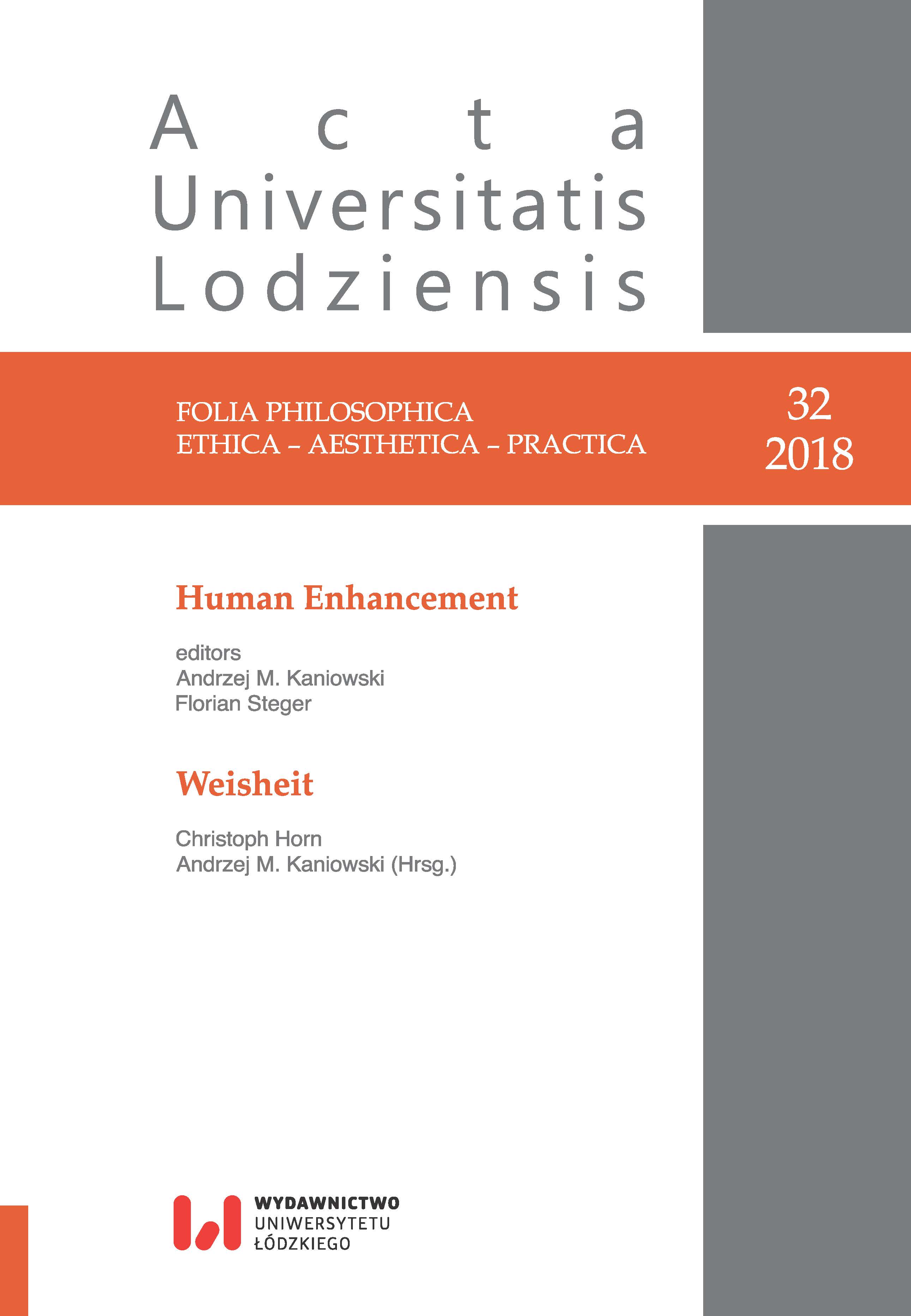Transhumanism as a Challenge to the Medical Doctor-Patient Relation
DOI:
https://doi.org/10.18778/0208-6107.32.04Słowa kluczowe:
transhumanism, medical ethics, HET, IVF, human enhancementAbstrakt
In this paper I undertake to analyze the way in which the arrival of HETs may influence the therapeutic relationship between the medical doctor and the patient. I begin with presenting he notion of transhumanism, insisting especially on the fact that some of the technologies that can be classified as HETs are already in use. As a result, the traditionally difficult task of defining health and a disease is becoming even more complicated. This circumstance poses the risk that medical doctors in their relationship with the patient, because of the possibilities offered by new technologies, will oscillate in their professional practice between helping the patient to recover and satisfying needs that are not justified by the considerations of health. I will try to show how the therapeutic relationship between the medical doctor and the patient may be transformed because of new technologies by using the example of IVF procedure applied to postmenopausal patients. In order to understand why the relationship between the medical doctors and their patients is so vulnerable in the context of transhumanism, I propose to re-analyze the most basic notions which help us understand the nature of the therapeutic relationship: the status of medicine as contrasted with technology, basic principles of medical ethics, the notion of a disease and an illness.
Bibliografia
Aristotle. Metaphysics, translated by W. D. Ross. http://classics.mit.edu/Aristotle/metaphysics.1.i.html
Google Scholar
Beck, Ulrich. The Risk Society. Towards a New Modernity. London: Sage Publications, 1992.
Google Scholar
Bostrom, Nick. “Human Genetic Enhancements: A Transhumanist Perspective.” Journal of Value Inquiry 37, no. 4 (2003): 493–506. https://nickbostrom.com/ethics/genetic.html
Google Scholar
Chen, Christopher. “Pregnancy after human oocyte cryopreservation.” The Lancet 327, no. 8486 (1986): 884–886.
Google Scholar
Cutas, Daniela, and Anna Smajdor. “Postmenopausal Motherhood Reloaded: Advanced Age and In Vitro Derived Gametes.” Hypatia 30, no. 2 (2015): 386–402. https://www.ncbi.nlm.nih.gov/pmc/articles/PMC4461075/
Google Scholar
Descartes, René. The Principles of Philosophy. https://faculty.iiit.ac.in/~bipin/files/Dawkins/New/Descartes%252C%20Rene%20-%20The%20Principles%20of%20Philosophy.pdf
Google Scholar
Folscheid, Dominique. La question de la mėdicalitė. In Philosophie, ėthique et droit de la mėdicine, edited by Dominique Folscheid, Brigitte Feuillet-Le Mintier, Jean-François Mattéi, 111–121. Paris: Presses Universitaires de France, 1997.
Google Scholar
Folscheid, Dominique, and Jean-Jacques Wunenburger. L´objet de la médicine. In Philosophie, ėthique et droit de la mėdicine, edited by Dominique Folscheid, Brigitte Feuillet-Le Mintier, Jean-François Mattéi, 132–138. Paris: Presses Universitaires de France, 1997.
Google Scholar
Fukuyama, Francis. Our Posthuman Future. Consequences of the Biotechnology Revolution. New York: Farrar, Straus, and Giroux, 2002.
Google Scholar
Fuss, Johaness, Matthias K. Auer, Sarah V. Biedermann, Peer Briken, and Werner Hacke. “Deep brain stimulation to reduce sexual drive.” Journal of Psychiatry and Neuroscience 40, no. 6 (2015): 429–31.
Google Scholar
Habermas, Jürgen. The Future of Human Nature. Cambridge, U.K.: Polity Press, in association with Blackwell Publishing, 2003.
Google Scholar
Hottois, Gilbert. Philosophie et idéologies trans/posthumanistes. Paris: Éditions Vrin, 2017.
Google Scholar
Łuków, Paweł. Granice zgody: autonomia zasad i granica zgody pacjenta. Warszawa: Wydawnictwo Naukowe SCHOLAR, 2005.
Google Scholar
Parks, Jennifer A. “A Closer Look at Reproductive Technology and Postmenopausal Motherhood.” Canadian Medical Association Journal 154, no. 8 (1996): 1189–1191.
Google Scholar
Shifren, Jan L., and Margery L. S. Gass. “The North American Menopause Society Recommendations for Medical Care of Midlife Women.” Menopause: The Journal of North Menopause Society 21, no. 10 (2014): 1–25.
Google Scholar
Testart, Jacques, Rousseaux Agnès. Au péril de l´humain. Les promesses suicidaires des transhumanistes. Paris: Éditions du Seuil, 2018.
Google Scholar
Bolton, Doug. “Russian billionaire Dmitry Itskov seeks »immortality« by uploading his brain to a computer.” Independent, March 14, 2016, https://www.independent.co.uk/news/science/dmitry-itskov-2045-initiative-immortality-brain-uploading-a6930416.html
Google Scholar
International Committee for Monitoring Assisted Reproductive Technology (ICMART) and the World Health Organization (WHO) revised glossary of ART terminology, 2009, http://www.who.int/reproductivehealth/publications/infertility/art_terminology2.pdf
Google Scholar
South, Todd. “This Army unit will be the first to test an exoskeleton that lightens combat load,” Army Times, June 5, 2018, https://www.armytimes.com/news/your-army/2018/06/05/this-army-unit-will-be-first-to-test-an-exoskeleton-that-lightens-combat-load/
Google Scholar
https://humanityplus.org/
Google Scholar
https://www.fiv.fr/fiv-apres-40ans/
Google Scholar
https://www.healthline.com/health/menopause/menopause-pregnancy#ivf
Google Scholar
https://www.nhs.uk/conditions/ivf/availability
Google Scholar
Pobrania
Opublikowane
Jak cytować
Numer
Dział
Licencja

Utwór dostępny jest na licencji Creative Commons Uznanie autorstwa – Użycie niekomercyjne – Bez utworów zależnych 4.0 Międzynarodowe.












